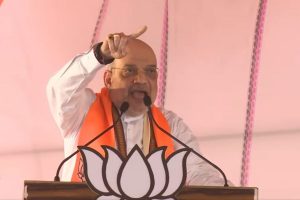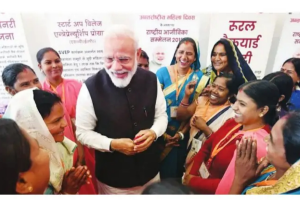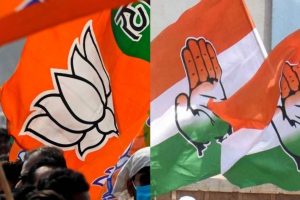Having dropped several chapters on the emergence of Islam and the Mughal empire, the Centre’s HRD ministry is planning to introduce chapters from the Vedas in school syllabi. This will in effect be a swing back from the era of the Delhi Sultanate and the Mughals to the Vedas of ancient India. The periodisation of history thus affected will be quirky. Towards that end, the National Curriculum Framework (NCF) has been asked to suggest a suitable introduction of material from the Vedas and other Hindu scriptures.
The entity on curriculum, helmed by the former ISRO chairman, K Kasturirangan, has been tasked to put in place the national curriculum, on which will be embedded the syllabi and textbooks. The task will be carried out in collaboration with the National Council of Educational Research and Training (NCERT). It would be useful to recall that its text on medieval and modern Indian history, published in the early 1970s, is still the authoritative work on the subject ~ from the undergraduate level to the higher strata of studying the discipline of history.
It had been crafted by three front-ranking historians of the day, with the guidance of the then education minister, Mr Nurul Hasan. Regretfully, no such academic compulsion appears to have driven the latest initiative, one that is geared intrinsically to play to the Hindutva gallery. Regretfully, once more, the line between religious instruction and learning is becoming increasingly blurred. It thus comes about that the government wants to introduce the subject of Vedic mathematics in different classes. It is generally felt that in 2022 Anno Domini, there is a need for integrating Vedic knowledge into the syllabus and textbooks. There is little doubt that both will be pivotal to evaluate the assimilation of knowledge. And no less crucially, its acceptance in institutions of higher learning for post-graduate studies and research. Rightly certain academics cautioned against prejudice while introducing Vedic studies in schools. A mishmash of ancient syllabi and modern learning can only befuddle the student. Vedic knowledge will be integrated into all subjects, including agriculture. A more quirky formulation of syllabi is hard to imagine. The Vedas have been texting since ancient India and are, therefore, precious to humankind. In the contemporary era, however, the Vedas are regarded as texts that are related to a particular religion.
The HRD ministry isn’t suitably confident on whether it will be taught without any critical interpretation and analysis, which are dependent on the assimilation of data. A section of historians has already been explicit on the point that “if any scripture is taught as inviolable and sacred and does not allow questioning, its acceptance will be limited”. They have already underlined the need for “openness” on any aspect of the Vedas. The history of the Muslims generally and that of the Mughals, in particular, cannot possibly be ignored because of their long presence in India. The study of Vedic mathematics, above all, calls for reflection.











